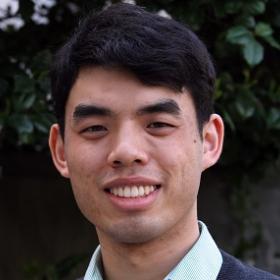
China’s "Global Times" Interviews EWI’s David Firestein
David Firestein, Perot Fellow and vice president for the Strategic Trust-Building Initiative and Track 2 Diplomacy at the EastWest Institute, spoke to China’s Global Times about EWI’s recent report, Threading the Needle: Proposals for U.S. and Chinese Actions on Arms Sales to Taiwan, as well as other issues in U.S.-China relations.
In a February 14 Global Times interview, Firestein details the findings of Threading the Needle, which he co-authored with Piin-Fen Kok, Director of EWI’s China, East Asia and United States program.
Firestein emphasized the major innovations set forth in the report. One that drew particular attention was the idea of “concurrent unilateralism.” This concept recommends that the U.S. and China take actions unilaterally and not as part of a deal, as U.S. policy prevents Washington from making deals or directly consulting with China on the issue of arms sales to Taiwan. But they both could take their own actions on this issue at the same time.
Other innovations include proposing a monetary cap on arms sales that would bring the U.S. into compliance with its commitments as stipulated in the 1982 Communique. The report also calls on China to move one of its short-range ballistic missile brigades out of range of Taiwan as a proportional confidence-building gesture.
Firestein noted that the report grew out of extensive consultations in Washington, Beijing and Taipei, and that policymakers and scholars in all three cities provided valuable input that strengthened the report. He added that the findings of the report are being communicated to policymakers and officials in both the U.S. and Chinese governments, and that the initial response to these ideas has been encouraging.
The interview also touched on other issues pertaining to the U.S.-China relationship, including President Obama’s upcoming visit to Asia, China’s new leadership and the idea of a “new type of great power relations.” Below are some highlights from Firestein’s interview.
_
On developing a cap on arms sales:
“This process essentially ‘modernizes’ the Communique and translates it into current dollar terms so that policymakers now have a very precise sense for what the 1982 Communique means today for U.S. arms sales to Taiwan… No other scholars had ever crunched these numbers, but now, as a result of our work, the numbers are on the table and, as George Shultz, who was U.S. Secreary of State when the 1982 Communique was signed, has stated, they are now ‘demystified.’”
On the role of U.S. business interests in arms sales to Taiwan:
“We see the driving consideration in the U.S.-mainland China-Taiwan dynamic as ideology, not money. What drives arms sales—including Taiwan’s own requests for U.S. arms—is the stark disparity between the mainland’s and Taiwan’s political and social systems and, relatedly, Taiwan’s sense of insecurity relative to the mainland, not profit-seeking by U.S. defense contractors. As we noted in our report, as long as there is such a stark disparity between the mainland and Taiwan’s political and social systems, arms sales will continue.”
On a “new type of great power relations”:
“China places a lot of stock in the notion of a ‘new model of great power relations’… I don’t think the concept resonates that well in Washington. I think most people in Washington believe that foreign policy is driven principally by a nation’s interests and values. In this way of looking at things, how U.S.-China relations develop over the coming years or decades will primarily be a function of the degree to which U.S. and Chinese interests converge or diverge, and this tends to unfold ‘case by case,’ ‘issue by issue.’ I don’t think any overarching intellectual construct, such as ‘new type of great power relations,’ fundamentally changes this dynamic.”
On President Obama’s “real intentions toward China” with regards to arms sales:
“There is a broad and enduring bipartisan consensus in the United States that continuing to sell arms to Taiwan advances U.S. interests and helps maintain the region’s peace and stability. That said, I don’t think the issue of U.S. arms sales to Taiwan is the right litmus test (from a Chinese perspective) for a U.S. president’s ‘real intentions toward China.’ All U.S. presidents sell significant quantities of U.S. arms to Taiwan—on average, about a billion dollars a year worth. Perhaps a better litmus test of presidential intentions is his willingness to invest personal time and energy in meeting his counterpart and personally set the tone for the relationship. By this measure, I think President Obama can rightly be regarded as one of the most active advocates of and contributors to improved U.S.-China ties in recent years.”
Click here for the full interview (in Chinese).
_
Return to EWI Now.

